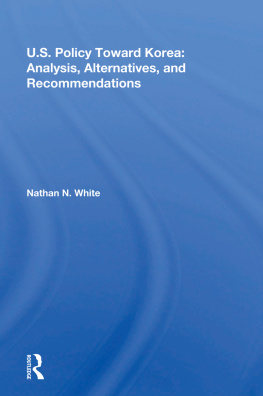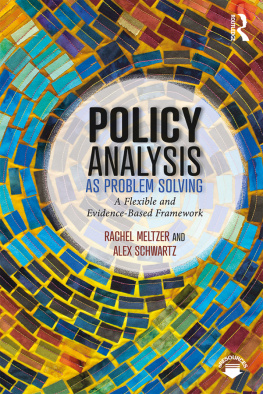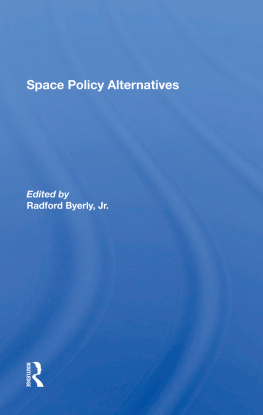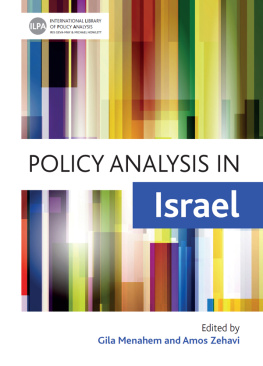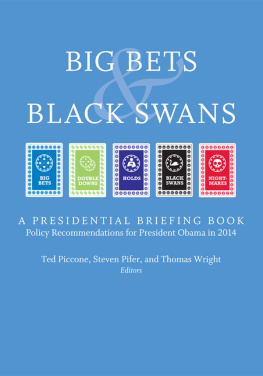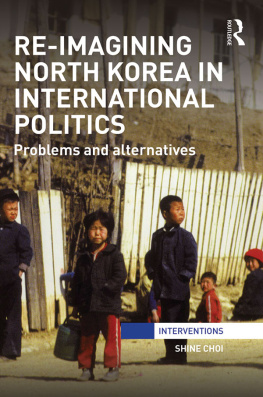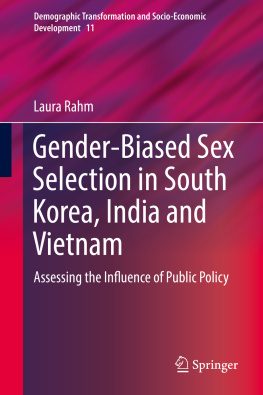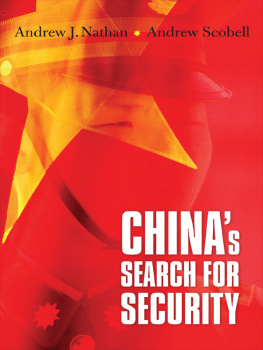U.S. Policy Toward Korea
Westview Replica Editions
This book is a Westview Replica Edition. The concept of Replica Editions is a response to the crisis in academic and informational publishing. Library budgets for books have been severely curtailed; economic pressures on the university presses and the few private publishing companies primarily interested in scholarly manuscripts have severely limited the capacity of the industry to properly serve the academic and research communities. Many manuscripts dealing with important subjects, often representing the highest level of scholarship, are today not economically viable publishing projects. Or, if they are accepted for publication, they are often subject to lead times ranging from one to three years. Scholars are understandably frustrated when they realize that their first-class research cannot be published within a reasonable time frame, if at all.
Westview Replica Editions are our practical solution to the problem. The concept is simple. Me accept a manuscript in camera-ready form and move it immediately into the production process. The responsibility for textual and copy editing lies with the author or sponsoring organization. If necessary we will advise the author on proper preparation of footnotes and bibliography. We prefer that the manuscript be typed according to our specifications, though it may be acceptable as typed for a dissertation or prepared in some other clearly organized and readable way. The end result is a book produced by lithography and bound in hard covers. Initial edition sizes range from 400 to 600 copies, and a number of recent Replicas are already in second printings. We include among Westview Replica Editions only works of outstanding scholarly quality or of great informational value, and we will continue to exercise our usual editorial standards and quality control.
U.S. Policy Toward Korea:
Analysis, Alternatives, and Recommendations
Nathan N. White
Dr. White formulates four major alternatives for U.S. policy toward South Korea, reflecting the spectrum of options available and ranging from disengagement to continued support, encouragement of peaceful unification with the north, and legitimization of the status quo. He presents and evaluates a case for each alternative, then offers a judgment as to which would be most advantageous to the United States. After the primary discussion of policy at the most general level, he introduces a set of military considerations, surveys a wide range of military support options, and identifies the options consistent with the general policy alternatives discussed earlier.
Nathan N. White is a fellow at the Institute for Sino-Soviet Studies, George Washington University. Previously he was an analyst at the Institute for Defense Analyses, where he specialized in foreign policy issues.
U.S. Policy Toward Korea: Analysis, Alternatives, and Recommendations
Nathan N. White
First published 1979 by Westview Press
Published 2018 by Routledge
52 Vanderbilt Avenue, New York, NY 10017
2 Park Square, Milton Park, Abingdon, Oxon OX14 4RN
Routledge is an imprint of the Taylor & Francis Group, an informa business
Copyright 1979 by Taylor & Francis
All rights reserved. No part of this book may be reprinted or reproduced or utilised in any form or by any electronic, mechanical, or other means, now known or hereafter invented, including photocopying and recording, or in any information storage or retrieval system, without permission in writing from the publishers.
Notice:
Product or corporate names may be trademarks or registered trademarks, and are used only for identification and explanation without intent to infringe.
Library of Congress Catalog Card Number: 78-20735
ISBN 13: 978-0-367-21233-9(hbk)
This paper has benefited greatly from the criticisms and recommendations of a number of individuals who generously consented to read earlier versions of the manuscript. The first draft underwent a major revision as a consequence of comments made by Dr. Jan Kalicki and Lt. Col. Kenneth Richeson. Mr. Paul Cleveland and Mr. Paul Flint offered further suggestions which led to a second revision. Throughout this process, Gen. Bruce Erwin, Dr. John Moriarty, and Dr. Karl Spielmann, my colleagues at the Institute for Defense Analyses, provided generous support and many helpful suggestions. A special debt of gratitude is owed to Ms. Jo Hill, our editor, who labored mightily to remove the many lapses and errors that were present in the manuscript. For whatever mistakes of fact or Judgment that may remain in the paper, the author is solely responsible.
With the announcement of President Carter's decision to withdraw U.S. ground combat forces from South Korea over a period of 4 to 5 years, U.S. policy toward Korea appears to be entering a period of change. How long this period will prove to be and what transformations U.S. policy will undergo as the process unfolds are as yet unclear.
In addition, relations between the United States and the Republic of Korea (R.O.K.) are becoming increasingly strained. Many Americans are repelled by what they regard as authoritarian excesses on the part of President Pak Chong-hui's government. Even more are offended by Seoul's effort to influence the U.S. domestic political process, apparently by improper means. Other Americans believe that the United States has done enough to help the R.O.K. and that South Korea should soon be strong enough to stand on its own feet, if it is not already. The impending decline in U.S. military support coupled with the widespread post-Vietnam disenchantment with foreign entanglements evident in the United States has stimulated considerable apprehension on the part of the South Koreans concerning the long-term reliability of the U.S. defense commitment. At the same time, as South Korea has become stronger and her people and government more self-confident, the need to conform to U.S. wishes has become less pressing. Many South Koreans, moreover, apparently discern a supercilious, moralistic tone in American criticisms of their country and strongly resent what they regard as big-power arrogance.
As a result, a lively debate Is In progress within the United States--in the government, the media, and academic circles--concerning the approach that should be taken toward what is termed the Korea problem, with proponents of contending points of view advocating a wide range of policies. The spectrum of opinion is sufficiently wide and the defense of the opposing policy options sufficiently vigorous and sophisticated that it would be difficult to conjure up a consideration bearing on U.S. Korea policy that has not yet come to the attention of those interested in affecting the future direction of that policy.
Unfortunately, many of the policy-related analyses are less-than-satisfactory guides to action. Some are of a polemical nature. Others are couched in more neutral language but in tone and general thrust are still clearly tendentious. Still others are objective but suffer because they are excessively restricted in scope and neglect to take up, or treat only in passing, considerations that cannot be excluded from the analysis without distorting it and Jeopardizing the validity of its conclusions. Restricting the number of considerations presumed to be relevant to our Korea policy has the additional consequence of artificially simplifying what is actually a complicated policy issue and thereby obscuring both the tensions that exist between the various considerations and the dilemmas facing U.S. decisionmakers. What stimulated the writing of this paper was the belief that a study that attempted to be as dispassionate and comprehensive as possible could make a useful contribution to the debate on Korea policy.


